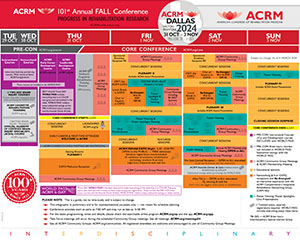Julia Manczurowsky
PhD Candidate
Northeastern University
My life has been driven by the question, “How are people taught to move their bodies?” I have pursued the answer in many contexts: as an athlete using motor control strategies during training, as a physical therapist applying motor learning principles in clinical practice, and now as a PhD student generating knowledge about human movement and rehabilitation. I want to create new knowledge about the unknown relationship between motor learning and social psychology to improve clinical practice, increase motivation during neurorehabilitation, and ultimately help patients achieve their movement goals. I have clinically experienced patients losing motivation during intense exercise to where I needed to increase my physical assistance. Coupling motor control principles with social reinforcements of attention, encouragement, and teamwork are mechanisms I wish to explore as potential ways of addressing slacking and accommodation during assisted rehabilitation.
Inspiring my long-term plans of pursuing a PhD, my early motor control research experiences under my current sponsor Dr. Hasson produced two second-author manuscripts from each my DPT training capstone project (studying vibrotactile feedback and performance) and my post-DPT research assistantship (studying reinforcement learning in locomotor training). Conducting motor control and motor learning studies prior to my PhD gave me a baseline of scientific familiarity and technical skills I needed to meaningfully contribute to the projects from design to dissemination, including motion-capture analysis, programming in MATLAB and LabView for data collection and protocol feedback, and executing experimental locomotor training to assess motor learning and retention. Formulating, testing, and publishing my findings at a predoctoral level critically helped me shift successfully from clinical work to research in human movement. Fellowship support will protect time for my current work, advance my predoctoral education, and continue my scientific professional development.
The last two years as a research assistant and PhD student in the Neuromotor Systems Laboratory (PI: Hasson) has complimented my healthcare experience and built a strong foundation for me to become an independent clinician-scientist. My long-term goal is to develop a translational, interdisciplinary research program aimed at improving function for people with mobility deficits. My research skills and knowledge of motor learning paradigms have grown significantly from strong mentorship, graduate coursework, and hands-on experience developing custom software and protocols and executing biomechanical data collection, processing, and analyses. Over the last year, Sponsor Hasson, co-sponsor Hillman, and myself have collaborated on a project outside of my planned dissertation to investigate the effects of a temporary neuromotor impairment on executive function during locomotion. With sponsor Hasson, I am also investigating how the experience level of physical therapists effects their ability to manipulate limbs and control of forces during gait training. For these studies, I have been trained to take multimodal measurements using custom software for cohesion of motion capture, electromyography, and force and torque ergometry into paradigms that investigate motor learning processes and outcomes. I additionally have completed a qualitative study illuminating the subjective mechanisms therapists use to assist patients as needed during training in collaboration with a clinical faculty member, Dr. Cheerman; we plan to submit a manuscript for publication by the end of the year. My readiness to do dissertation work has also been furthered by troubleshooting, collecting, and analyzing new pilot data reflecting the feasibility
of the temporary neuromotor perturbation and its effects on motor learning that will be used for my dissertation, and this proposed research.
I have three peer-reviewed journal publications, including a recent first-author paper describing new MATLAB/Simulink software I programmed, and ten peer-reviewed conference presentations (four of which are first-author). My recent first author abstract with sponsor Hasson and co-sponsor Hillman highlights the development of my relationship with my proposed mentoring team and the ongoing testing of the stimulation paradigm used in this application. I am excited about my planned PhD research, as it proposes a unique approach to solve the persistent problem I encountered in my clinical education and years of field experience: the rapid loss of motivation during physically assisted exercise (sensorimotor engagement). This focus has led me to partner with Dr. Charles Hillman, an expert in cognitive psychology, to investigate the impact of motivation on motor learning. My research has the potential to improve patient motivation by shifting their perceptions, so they view themselves as essential components of a rehabilitation partnership.
Poster(s):
-
Saturday, November 2, 20242:30 PM - 2:45 PM

.jpg)
.jpg)
.jpg)
